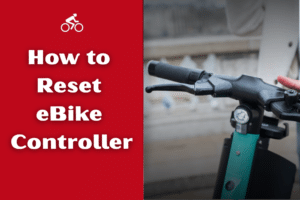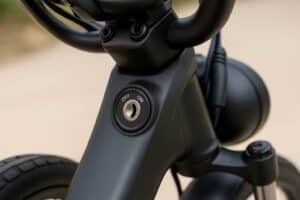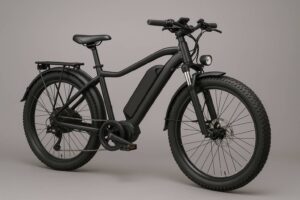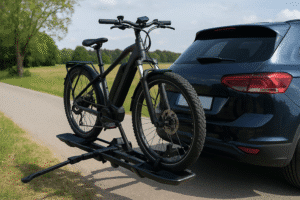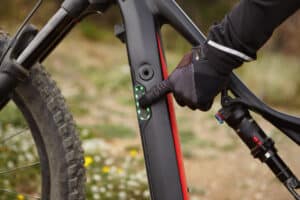E-bikes are legal across Pennsylvania, but there are specific rules you’ll need to follow. Whether you’re commuting, exploring state parks, or just out for a ride, it’s important to understand what the state allows.
This guide breaks down PA e-bike laws for 2025, including where you can ride, speed and power limits, and age restrictions.
Pennsylvania E-Bike Laws at a Glance
- Pennsylvania does not use the Class 1/2/3 system for e-bikes
- E-bikes must have pedals, a motor under 750W, and not exceed 20 mph under motor power alone
- No license, registration, or insurance is required
- Riders must be 16 years or older to operate an e-bike
- Helmets are required for riders under 12, but recommended for all
- E-bikes are allowed on roads, bike lanes, and multi-use trails unless posted otherwise
- Throttle-only mode is not allowed on non-motorized state park trails
Are E-Bikes Legal in Pennsylvania?
Yes, e-bikes are legal in Pennsylvania as long as they meet the state’s definition of a “pedalcycle with electric assist.”
That means your e-bike is treated like a bicycle, not a motorcycle or moped. You don’t need a license, insurance, or registration to ride it on public roads or bike paths. But your bike has to follow some rules around motor power, speed, and design.
In most places, e-bikes are allowed anywhere a regular bicycle is. This includes roads, bike lanes, and trails open to cyclists.
However, parks and towns may have extra rules, so it’s worth checking with local authorities if you’re unsure.
Pennsylvania E-Bike Definition and Requirements
Pennsylvania defines an e-bike as a pedalcycle with electric assist that meets four key requirements:
To be street-legal in PA, your e-bike must:
- Weigh 100 pounds or less
- Have a motor rated at 750 watts or less
- Not exceed 20 mph under motor power alone
- Have fully operable pedals for manual use
If your e-bike doesn’t meet these standards, it may be considered a moped or motor vehicle, which comes with stricter requirements.
E-bikes that follow these rules are not subject to licensing or insurance in the state.
Where Can You Ride an E-Bike in Pennsylvania?
E-bikes in Pennsylvania can be ridden anywhere traditional bicycles are allowed, including roads, bike lanes, and shared-use paths.
However, there are some restrictions based on location and trail use. The rules are different depending on whether you’re in a city, state forest, or recreational area.
Allowed on:
- Public roads and streets open to bicycles
- Bike lanes and road shoulders
- Multi-use trails that allow bicycles
- DCNR-managed state parks and forests, if the trail is open to regular bikes
- Motorized trails and roads, unless marked otherwise
Not allowed on:
- Natural areas or protected lands closed to bikes
- Designated hiking trails, often marked with orange or yellow blazes
- Trails or roads explicitly marked closed to bicycles or e-bikes
- Trails where throttle-only use is prohibited (only pedal-assist is allowed on non-motorized DCNR trails)
Before you head out, it’s smart to double-check local signage or park websites. Some towns and parks may have their own rules about throttle use, trail access, or speed limits.
Age and Helmet Requirements
In Pennsylvania, you must be at least 16 years old to ride an e-bike, and helmets are only required for riders under 12.
Even though the helmet law doesn’t apply to e-bike riders 16 and older, it’s strongly recommended for safety.
Most serious injuries from bike accidents involve head trauma, and a good helmet can make a big difference. If you’re riding fast, near traffic, or on trails, wearing one is a smart choice.
Do You Need a License or Registration?
No, you do not need a license, registration, or insurance to ride an e-bike in Pennsylvania.
E-bikes are treated like bicycles, not motor vehicles. As long as your bike follows the state’s legal definition, 750W max motor, 20 mph top speed under motor power, operable pedals, and under 100 pounds, you’re good to go.
There’s no need to visit the DMV or carry insurance.
What About E-Bike Classes in Pennsylvania?
Pennsylvania does not use the Class 1, 2, or 3 system for e-bikes.
Unlike many other states that divide e-bikes into three classes based on speed and throttle use, PA keeps things simple. All e-bikes are treated the same under the law, as long as they meet the state’s basic definition of a “pedalcycle with electric assist.”
That means you don’t need to worry about Class 1 vs. Class 3 differences when riding in Pennsylvania.
However, if you’re buying a new e-bike, it’s still useful to know how those classes work, especially if you plan to travel out of state where class-based laws apply.
Read more:
E-Bikes in Pennsylvania State Parks and Forests
E-bikes are allowed on trails and roads in PA state parks and forests, but only if those areas are already open to traditional bicycles.
The Department of Conservation and Natural Resources (DCNR) has clear rules about where you can ride. If a trail allows pedal bikes, you can usually bring your e-bike too, but throttle-only riding is restricted on non-motorized trails.
Here’s what to know:
- E-bikes must weigh 100 lbs or less
- Motor must be 750 watts or less
- Speed must be 20 mph or less under motor power
- Pedals must be fully functional
- Throttle-only use is not allowed on non-motorized DCNR trails (pedal-assist only)
- Riders must stay on marked trails, no going off trail or creating new paths
- Some areas like natural areas or hiking-only trails remain off-limits
Always check specific park websites or signage before your ride. Rules may vary by location, and not all parks have the same trail designations.
Safety Tips and Best Practices
Whether you’re on a paved road or a backwoods trail, riding safe and respectful goes a long way. These tips help protect you and everyone sharing the path:
- Always wear a helmet, even if it’s not required
- Use lights and reflectors in low-light conditions
- Ride single file on narrow trails or when passing
- Slow down in crowded or blind corners
- Let others know you’re passing with a bell or friendly call
- Stay to the right and pass on the left
- Yield to pedestrians and horses
- Don’t wear earbuds that block out traffic or trail sounds
- Keep your speed under control and be ready for unexpected obstacles
Final Words
Pennsylvania’s e-bike laws are pretty straightforward: keep it under 750 watts, pedal-assist only on certain trails, and stay under 20 mph. If your e-bike meets those standards, you can ride it on most roads, bike lanes, and park trails across the state.
Just remember, local towns and park systems might have extra rules. When in doubt, check ahead. And always ride like you’re sharing the space, because you are.
FAQs
Are Class 3 e-bikes legal in Pennsylvania?
Pennsylvania doesn’t use the Class 1/2/3 system, so there’s no separate rule for Class 3 e-bikes. However, if your e-bike goes over 20 mph under motor power or has more than 750 watts, it’s not legal for public use under PA law.
Can I ride an e-bike on sidewalks in PA?
There’s no statewide law banning e-bikes on sidewalks, but many cities prohibit it, especially in business districts. Always check local ordinances before riding on sidewalks.
Can I use throttle mode on my e-bike in state parks?
Not on non-motorized trails. In PA state parks and forests managed by DCNR, you’re only allowed to use pedal assist on those trails. Throttle-only use is limited to motorized roads or trails where it’s clearly allowed.
Are there speed limits for e-bikes in Pennsylvania?
Yes. E-bikes must not exceed 20 mph under motor power alone. You can go faster if you’re pedaling downhill, but the motor shouldn’t push past that limit.
Can kids ride e-bikes in PA?
No. Riders must be at least 16 years old to legally operate an e-bike in Pennsylvania, regardless of motor size or assist level.
Al Amin Morshed is the founder of BoltBikers and a seasoned e-bike reviewer with years of hands-on experience testing electric bikes. As a long-time e-bike enthusiast, he combines real-world riding insights with in-depth research to create honest, helpful content for riders of all levels. Through BoltBikers, Morshed aims to make e-biking more accessible, practical, and enjoyable – whether you’re a new rider or a daily commuter looking for the best gear.

